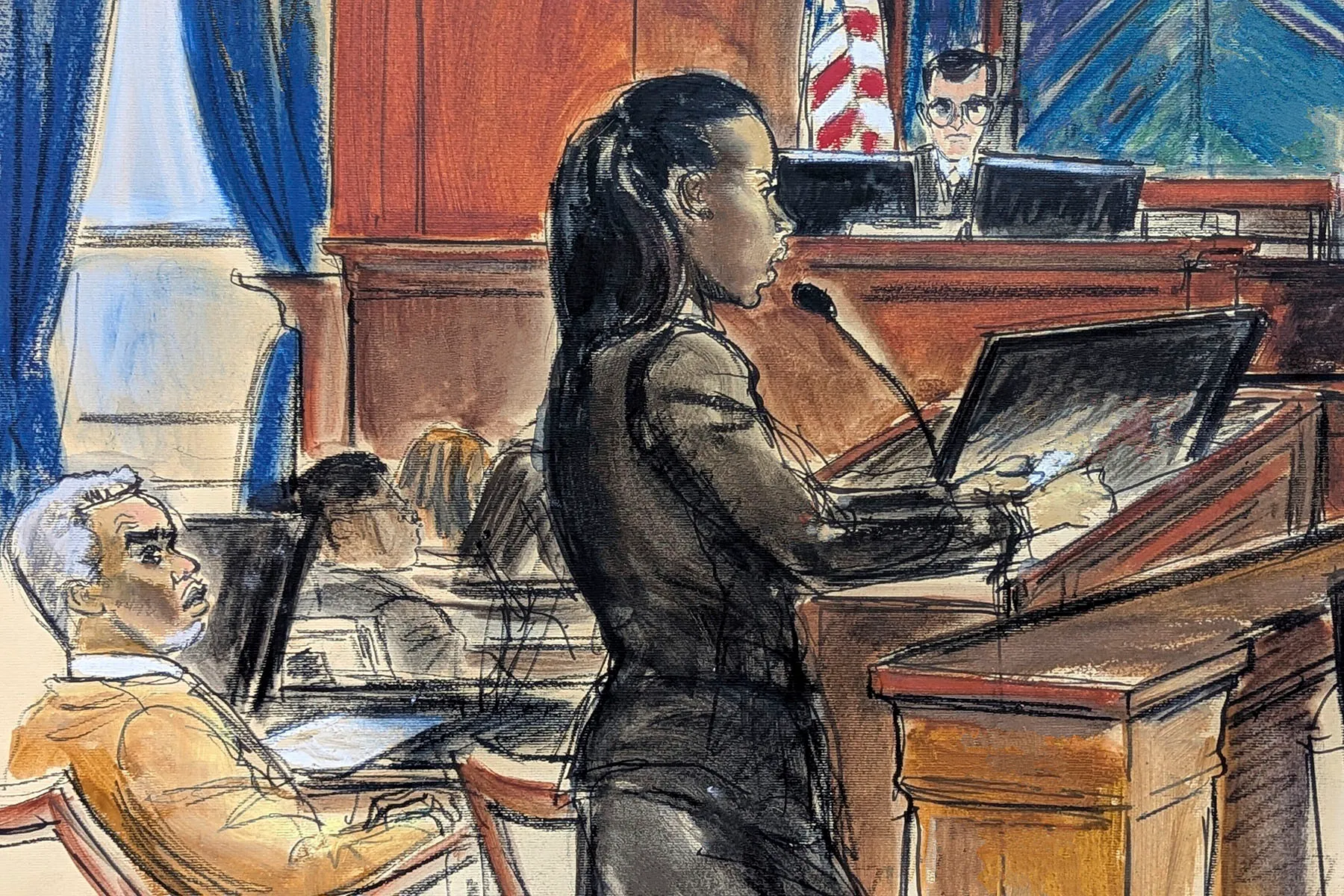A jury on Wednesday did not convict Sean “Diddy” Combs of the most serious charges he faced, finding him not guilty on two counts of sex trafficking and a single count of racketeering and guilty on two counts of transportation for purposes of prostitution.
These charges carry a maximum sentence of up to 10 years imprisonment each.
For a month and a half, federal prosecutors laid out their case against Combs, calling over 30 witnesses to the stand and accusing him of coercing two women into engaging in sex acts against their will. Combs, who pleaded not guilty to all charges, did not take the stand in his defense.
Cassandra Ventura, the singer, actress and model known as Cassie, was one of the prosecution’s star witnesses. Ventura, a former girlfriend of Combs, also filed a civil suit against him in 2023; the case was settled a day later, and Ventura received $20 million from Combs as a result.
Ventura’s attorney Douglas H. Wigdor on Wednesday credited her with the start of the criminal case.
“Although the jury did not find Combs guilty of sex trafficking Cassie beyond a reasonable doubt, she paved the way for a jury to find him guilty of transportation to engage in prostitution,” Wigdor said in a statement after the verdict. “By coming forward with her experience, Cassie has left an indelible mark on both the entertainment industry and the fight for justice. … She displayed unquestionable strength and brought attention to the realities of powerful men in our orbit and the misconduct that has persisted for decades without repercussion. This case proved that change is long overdue, and we will continue to fight on behalf of survivors.”
Ventura took the stand for four days, providing harrowing details about her relationship with Combs. She said she was coerced into engaging in sex acts, including participating in Combs’ now infamous “freak-offs” and being forced to have sex with male escorts while Combs watched. She explained that though she loved Combs, she was also fearful of him as a result of the level of control he exerted over every aspect of her life. Jurors were shown photographs of bruises and other physical injuries Ventura says she suffered as a result of Combs’ alleged abuse.
A hotel surveillance video of Combs physically assaulting Ventura in a hallway — allegedly during one of these freak-offs — was leaked to CNN last May. It was shown to jurors repeatedly during the trial as evidence of the threat of violence Ventura experienced should she not participate in the freak-offs. Two male escorts formerly employed by Combs also testified against him, specifically that they witnessed first-hand Combs physically abusing Ventura and his threats of extortion against her.
An anonymous witness, known only as “Jane” in court proceedings, shared a similar story over six days of testimony: An initial romantic relationship with Combs quickly changed as she was coerced into sex marathons, often with sex workers, that caused her to develop urinary tract and yeast infections.
Both Ventura and Jane testified about having been taken across state lines at Combs’ direction to participate in “freak-offs” for Combs’ entertainment.
The Office of the U.S. Attorney for the Southern District of New York, which prosecuted Combs, released a statement recognizing the work of police and prosecutors, as well as Ventura and Jane.
“Sex crimes deeply scar victims, and the disturbing reality is that sex crimes are all too present in many aspects of our society,” said the statement. “Prosecuting sex crimes requires brave victims to come forward and tell their harrowing stories. We and our law enforcement partners recognize the hardships victims endure and have prioritized a victim-centered approach to investigating and prosecuting these cases.”
Prosecutors argued that the women lived under threat of severe consequences should they not participate in these freak-offs, which often lasted for days and were enabled by the use of illegal drugs. The threat of domestic violence and of leaked sex tapes and photos was ever present, as was the revocation of financial support from Combs. With their careers and financial independence on the line, the federal government argued, the two women who took the stand against Combs were victims of sex trafficking.
As part of the government’s closing argument, prosecutor Christy Slavik underscored that everything in Ventura’s testimony regarding Combs’ behavior drove home the trafficking charge.
“All of this was designed to do one thing — to make Cassie afraid to say no to him,” Slavik said.
Sex trafficking is a widely misunderstood crime, experts say. It’s not usually a young woman being abducted by a stranger and forced into prostitution. Key to the federal legal definition of trafficking is the exchange of sex for something of commercial value — a financial payment or shelter, clothing and employment.
-
Read Next:
Bridgette Carr, the co-director of the human trafficking law clinic at the University of Michigan School of Law, told The 19th after the verdict that the way U.S. law treats labor trafficking and sex trafficking as two separate federal crimes can make a sex trafficking conviction difficult for prosecutors to obtain. In this case, it was further complicated by Combs’ celebrity and the fact that Ventura and Jane were both in long-term romantic relationships with him.
Carr pointed out that Combs was Ventura’s employer.
“She had a contract for her recording career. Let’s say she wanted to walk away from her personal relationship with him. Could she have walked away from her professional relationship?” she said. “If you can’t walk away from the professional relationship, are you protecting yourself by trying to cultivate a personal relationship?”
Carr also said that the fact that the jury found Combs guilty of violating the Mann Act — something that was created out of concern about “White slavery” and White women in particular being taken across state lines and forced into prostitution — does indicate that the jurors believed that Ventura and Jane were being transported to engage in commercial sex acts, just without force, fraud or coercion.
“To me, this signals this idea that they didn’t know what to do with the commercial sex in a framework of a romantic relationship,” Carr said.
Combs’ celebrity and wealth were key to the case, she said, even if they also were the factors that might have complicated the case for jurors.
“This is the story of an ecosystem created by a powerful employer who had employees that he could then do whatever he wanted, whenever he wanted because he was so financially powerful,” Carr said. “I care nothing about the romance. I want us to be talking about the power and control.”
Feeling overwhelmed by the news? The 19th is considering new ways to keep you informed. But we need your input. Fill out this quick survey to share your thoughts.







